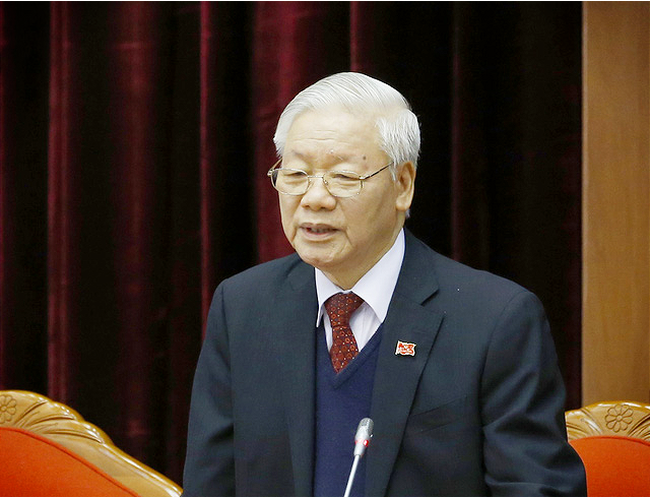
The national conference reviewing the 10-year implementation of the fight against corruption opened on June 30, chaired by Party Chief Nguyen Phu Trong, head of the Central Steering Committee on Anti-corruption. Mr. Trac spoke with the press before the conference.
Turning millions of people's eyes and ears into 'lights'
The fight against corruption in the past has made great progress and gained important, comprehensive achievements, creating positive effects throughout society. Mr. Trong once affirmed that "the work of preventing and combating corruption, wastefulness and negative phenomena has become a movement and trend", which has been applauded by cadres, Party members and people, and recognized by international organizations.
Mr. Trac pointed out five major reasons behind the achievements.
First, the timely and sound leadership of the Party Central Committee, the Politburo, the Secretariat, the NA and the Government, and especially the drastic and direct direction of the Central Steering Committee on Anti-corruption with very high political determination of the Party and State.
Second, the example of the Party Chief, the Party and State’s leaders, the heads of all levels and branches and their ‘talk the talk and walk the walk’ actions.
Third, the efforts and harmonious coordination of appropriate agencies to prevent and combat corruption and negative phenomena, especially Party inspections and prosecution agencies at the central and local levels.
Fourth, inheritance and continuation of the persistent struggle against corruption and negativity from previous tenures.
And fifth, the participation of the entire political system, from people, press and the whole society, which creates synergy in the prevention and fight against corruptions and wrongdoings.
“I would like to emphasize the extremely important role of heads and key leaders, especially the Party Secretary General, who is the head of the anti-corruption committee, people and the press,” he said.
Trac said this is a solid mainstay, a political guarantee and a great motivation, and this is a leading factor determining the success of the fight against corruption and wrongdoings.
He also emphasized the important role of people, saying that there is no other power which could be greater than people’s power. There is nothing that people don’t know, and therefore, nothing can escape people’s notice. Therefore, the people's consensus and support is a ruler that measures confidence in the Party's leadership in the fight against corruption and negative attitudes.
“We have to turn millions of eyes and ears of the public into lights to enlighten everywhere, so that embezzlement, waste and bureaucracy have no place to hide like Uncle Ho once taught us,” he said.
Cooperation among anti-corruption agencies
As a standing body of the Central Steering Committee on Anti-corruption, the Central Committee for Internal Affairs performs the task of advising and proposing solutions to the Steering Committee to bring positive effects in the operations of the committee, as well as anti-corruption works.
The Committee for Internal Affairs actively coordinates with appropriate authorities to do some main tasks, which is actively advising, proposing, urging and supervising the implementation of programs and work plans of the Steering Committee, and at the same time is giving advice in choosing and focusing on difficult and sensitive work.
The Committee for Internal Affairs advised the Steering Committee to organize many inspection delegations to inspect key fields.
It suggested many ways to improve the effectiveness of the Steering Committee's steering and directing efficiency, such as the mechanism of putting some wrongdoing cases under the supervision and direction of the Steering Committee; a mechanism for coordination among prosecution agencies to deal with difficulties during the process of handling difficult cases; a 5-step mechanism for handling serious and complicated cases; and mechanism to discover and handle embezzlement and wrongdoings in investigation, prosecution, trial, judgment enforcement, examination, inspection and audit activities.
“We pay high attention to reviewing the practice and research theory, and from that point, we propose amendment and supplementation of the functions, tasks, powers and working regulations of the Steering Committee. As a standing agency, we coordinate and harmonize agencies with anti-corruption and anti-corruption functions to improve the effectiveness of the Steering Committee's activities,” Trac said.
Tran Thuong - Thu Hang